In an animated conversation with journalist and author Jeffrey Goldberg on the opening evening of the 2014 Saban Forum, Israeli Labor Party leader Isaac Herzog made the case for a joint front in upcoming elections led by Labor to “lead Israel in a different direction.” While he ranked socio-economic challenges as one of his foremost priorities, Herzog spent much of the discussion arguing forcefully for enhancing Israel’s relationship with Washington and reviving prospects for peace with the Palestinians.
Herzog announced that he would seek to form a bloc to challenge Prime Minister Benjamin Netanyahu in elections, scheduled for March 17, saying that he wants to “break this notion that Netanyahu…is unbeatable.” He added that “I am here to tell you that I will form the next government and I will lead Israel in a different direction.”
Watch the entire discussion between Goldberg and Herzog here, and please check the main Saban Forum 2014 site for live and archived material from other webcast sessions, including addresses by Vice President Joe Biden, Prime Minister Benjamin Netanyahu (via satellite), Secretary of State John Kerry, as well as fascinating discussions between Forum Chairman Haim Saban and former Secretary of State Hillary Clinton, and between Brookings Foreign Policy Vice President Martin Indyk and Israeli Minister of Economy Naftali Bennett.
Israeli Elections and Domestic Politics
Herzog portrayed the elections as a fundamental crossroads for the Israeli state and society, asking:
“Will Israel skid dangerously into becoming a more extreme state in its behavioral mode, definitely as a government or will Israel correct itself into the direction of a well-positioned policies that go together with the original envisionment of Zionism, understanding our regional situation, trying to move towards peace and social justice, alignment with the United States, economic recovery and most importantly, strengthening and fostering democratic values?”
On the pre-elections maneuvering, Herzog explained that Israeli elections are “a coalitions game. It’s not a presidential race…A coalitions game means that you have to see what will be the day after. And this is what people don’t get. There could be an interesting coalition of parties and leaders who will decide to form a coalition, a new coalition…” Asked if he would consider aligning with parties to the right, such as Avigdor Lieberman’s Yisrael Beiteinu Party, Herzog responded “for me, all partners are possible,” adding that serving as Israeli opposition leader “ain’t nothing like being minority leader here” in the United States since Israel’s parliamentary system entails balancing a multiplicity of small political parties.
“(T)oday I have in my opposition three Arab parties. I have a Muslim Brotherhood party in my opposition…the only legal Muslim Brotherhood party in the world or in the region. And we have ultra-orthodox parties. So we have to understand that all communities in Israel are represented, and I believe since I’m talking to all of them, and since I respect the unique structure of Israeli society, that we can work together and build a coalition which will be different from the current right-wing coalition.”
Goldberg pointed out that although Herzog is an accomplished politician with a storied family background, he is known in Israel as “a non-charismatic figure” and a contrast to the more brash Labor politicians who have risen in Israeli politics in the past. Herzog responded that “in all of the data and the polls, people trust me. This is one of my virtues. They have to be able to trust in me. And this is what I’m focusing on. That’s my main challenge.”
Goldberg pressed the Labor chairman on the state of the party he leads among the Israeli population, noting that Labor is in a “diminished state” relative to its stature at Israel’s founding. Herzog first rejected the proposition, but then offered a multi-faceted explanation for the party’s recent performance. First, he said, “we lost touch with some of what the public really feels is important to them. For a long time, we were members in coalitions of other leaders. We kind of were erased of our identity [and it] took us time to recover, and we also lost touch with new groups in society while taking the role and demanding to be part of it.” He cited Russian immigrants, Israeli Arabs, and more generally the younger generation as constituencies that had gravitated toward other parties.
Asked who he listens to on security issues, Herzog declined to specify and instead shifted the focus to socio-economic challenges. “We must remember the social protests of 2011,” Herzog said, describing the events as “a major watershed in Israeli history.”
“All of a sudden, the nation woke up and demanded that not security or peace, they demanded social justice. And they kept on saying social justice. And five percent of the nation’s population gathered in a city square one night, demanding social justice, with no violence… And they didn’t get that delivered to them. And the only party that can deliver it to them in a fair and square manner that will be fair for all, is Labor. And this is part of the real agenda battle between me and Netanyahu, because Netanyahu speaks constantly about two, three issues. All of them are important. But these are not the only issues.”
Herzog criticized the bill, supported by Netanyahu, to define Israel as the nation-state for the Jewish people, stating that this concept would be consistent with a final status deal with the Palestinians. But he added that “(w)ithin Israel, all citizens must feel they are equal, not only to say it, but they must feel it. And coming forward with this discourse, on Jewish state, treads on racist undertones, makes a feeling that somebody will be preferred on the other.” He called the move to introduce the legislation “a horrendous mistake.”
Herzog spoke more generally about tensions in Israeli society and political culture, expressing concern about “undercurrents that are trying to limit and contain and curtail the beautiful vista of Israeli democracy. The fact that in our Parliament there is such a wide range of views… free speech laid down by our Supreme Court — to me, it’s holy, and I’ll do whatever I can with my colleagues to protect it.”
The Peace Process, Washington, and Iran
While he maintained that he holds no illusions on the peace process or the Palestinian leadership, Herzog advocated a renewed effort to resolve the conflict. He explained that “there is no other choice, despite all the fears; we will have to get over those fears. We will have to try again. Otherwise, the direction that Israeli society’s moving into could be bleak and that’s what we are doing, in order to correct it.”
“It depends on building trust. It depends on confidence building measures. It depends on being innovative, bold and it depends on radiating to the people that there is hope. The situation that we see right now is so devastating because there’s a feeling of lack of hope. There’s a despair feeling and most worrisome of all is the unleashing of feelings of religious hatred that is so dangerous to all of us, turning it into religious war.”
Herzog went on to explain that:
“I think Israel, the nation, suffered a certain trauma from a unilateral step of pulling out of Gaza. We have to attend to that fear. We were there — I was there. We were blamed for pulling out by our brothers and sisters from the settlements in Gaza and we said to them, there will be the new Hong Kong of the Middle East, and it didn’t work out. So we have to take it into account. I do believe however, unequivocally and from the bottom of my heart, that since it’s a must, it’s a must under all circumstances, to separate from the Palestinians, that if it fails, we will have to take steps that define our borders in a clearer way.”
Goldberg suggested this meant he was advocating unilateral withdrawal, and Herzog responded that it “depends on which way you do the unilaterism side. There are ways, even if you don’t negotiate, you can coordinate.’ He continued by insisting that “it’s a mistake that we already assume that it’s over. It’s part of the tragedy that unfolds in front of our eyes. It is not true, I’m telling you absolutely. It is possible, absolutely possible still, to make peace with the Palestinians.”
After Goldberg challenged him about Palestinian willingness to conclude a peace deal, Herzog said “It’s the easiest thing, is to tread on the psychology of fear. Okay, my adversaries in the political system, especially from the right, tread on fear. And I’m trying to challenge that and say, we cannot live only on fear. We have to be lucid. We have to be careful. We have to protect our interests, but we must talk. It cannot be that mothers and fathers on the other side don’t want peace…We have to go on and try.”
“Let’s be frank about it,” Herzog added. “We always love to judge everybody else’s political systems. I’m not judgmental. If I have to take a decision between Hamas and the Palestinian Authority, I believe in working with the Palestinian Authority, and I believe it’s feasible. And they are working.”
On reports of frictions between Netanyahu and the Obama administration, Herzog demurred that he did not want to criticize Netanyahu while he was travelling outside the country, explaining that “(t)here are rules of the game that we attend to.” But he laid some blame for the frictions between the Obama administration and Israeli authorities with the sitting government in Israel, charging that “the policies of the Israeli government have led us to a situation of total lack of trust…between the administrations or their leaders.”
He also defended the traditional perception of Washington as Israel’s most important ally, saying that “there’s nothing to compare, with all due respect to these important countries” between Washington and any alternative world power. While China and others “are very important countries…look at the record in the UN Security Council. We have only real one trustworthy ally, which we really share affection and trust with on so many levels, and there’s nothing to replace that.”
“We have to have connections with our friends and allies. We have to cooperate together in the international arena. That’s what boosts our economy and our internal strengths. And therefore we can’t just go on saying to everybody, you know, crying out loud, we are the ones who are besieged. We have our problems. We need to explain them. Yes, there is a lot of Israel hate around the world and there is a lot of anti-Semitic undertones, but that has nothing to do with the fact that we have problems we need to deal with. We have to present our policies correctly; we have to change our policies correctly. I always compare Israel to a mid-size ship in storm waters, in high seas, that has to maneuver within those seas correctly. Our leaders in the past knew how to do it. And to get today, we are in a situation where we find ourselves cornered without any ability to maneuver. That’s our main problem.”
On Iran, Herzog said “I trust the Obama administration to get a good deal. We hope they’ll get the best deal possible.” But he added that “(n)onetheless, we shouldn’t be naïve. We still live in a very dangerous and complicated world and region. The policies of the Iranian regime are clear to us. We’ve been discussing them here for years. And we shouldn’t be naïve to believe that if there’s a deal, all is well. There should be very strict supervision, very strict monitoring, and deciphering of whatever’s going in in relation to that program.”
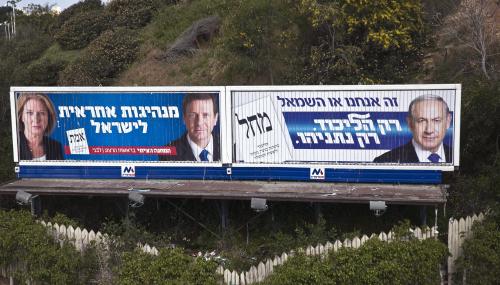
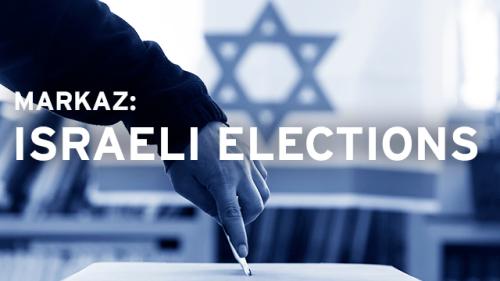
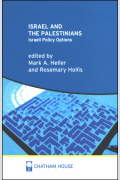
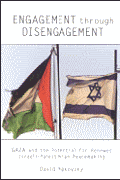
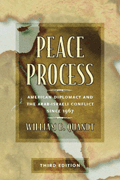


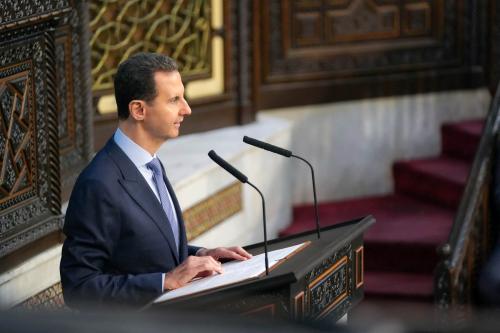
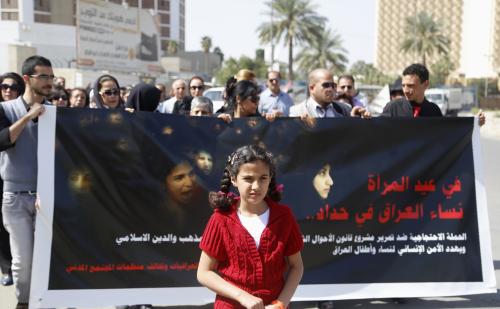
Commentary
At the 2014 Saban Forum, Israeli Labor Party Leader Herzog Declares “I Will Lead Israel in a Different Direction”
December 8, 2014